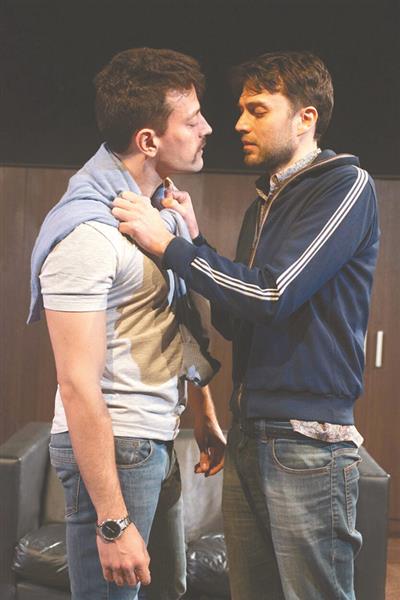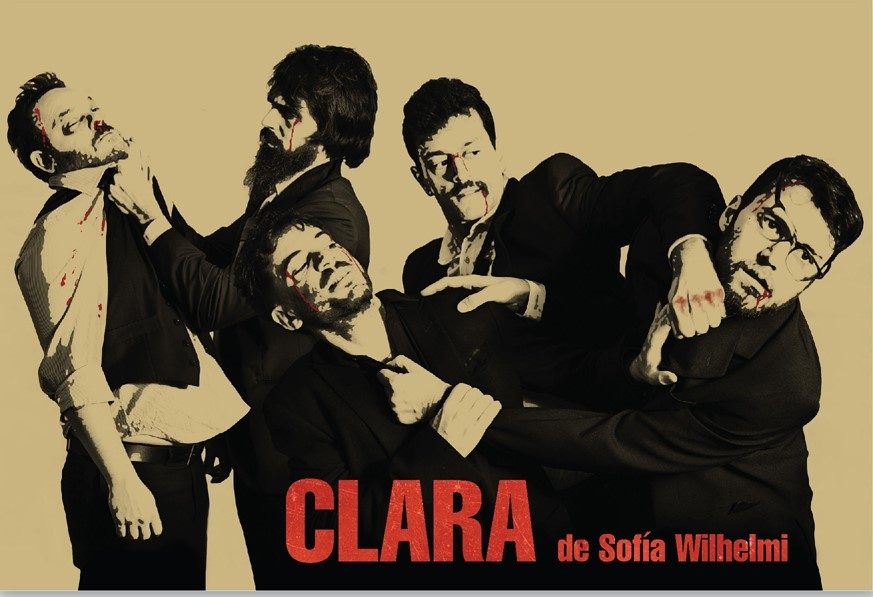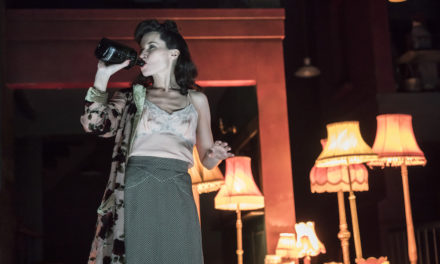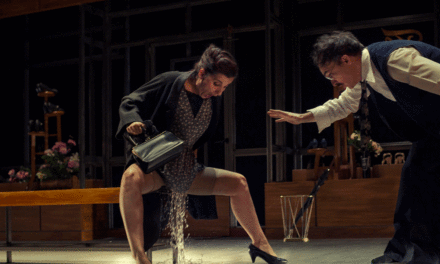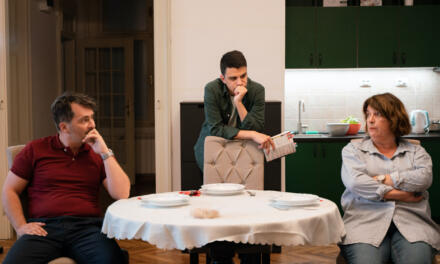How can a play about a serious matter such as a fatal illness turn into a hilarious comedy and a gripping thriller? Playwright and director Sofía Wilhelmi makes it possible through Clara, a work which proposes a singular theatre blend of genres and dozens of thought-provoking topics at the same time staged at El Camarín de las Musas.
Wilhelmi was born in 1983 in Lima, Peru, but has lived in Buenos Aires since 1986. In 2013, her play Baby Call was one of the winners of the Bienal de Arte Joven and was consequently produced by this program. In 2014 she was awarded a grant to represent Argentina at the International Forum of Theatertreffen in Berlin. The following year she was again granted an internship at Schauspielhaus Hamburg.In 2016 she staged her own play, Un nuevo continente, and Toda la verdad sobre la vida y la muerte de Kurt Cobain, by Romanian Peca Stefan, at the Playwright Festival E+A.
Clara — which was premièred in 2016 — takes place in a controversial year of Argentina’s recent history: 2001. And of course, the corralito is the social context which makes conflict arise: in that situation a grave private matter can only turn worse and worse. The press release enumerates: “2001. The big C. Crisis. Corralito. Clara. Cancer.” A woman, Clara, needs to be urgently operated on and there is only one neurosurgeon in the country, Dr Gabriel Rojas (Javier Pedersoli). He can carry it out it but, given an economic hindrance, he refuses to do so, no matter how much Santiago — Clara’s husband — (Agustín León Pruzzo), begs him. The inevitable consequence arrives and Santiago will not remain with his arms crossed. On the contrary, he will unfold a very well thought-out revenge. So far, the piece appears as a terrible personal drama which also exposes a critical social, political, and economic period in Argentina. But from then on, it is surprising how an increasingly humorous piece gets, because even if the revenge follows a thriller structure, the complications which come up trying to accomplish it become entanglements which are typical of a screwball comedy.
No way out
The set design by José Escobar (who is also an actor, and will replace Pedersoli during February) is perfect for a frenetic action where opening and closing doors is a recurrent and effective image. An enormous closet full of drawers and doors is purposeful for the movements of the actors as well as useful to show changes of the fictional space.
It is also a metaphor for the oppression Clara’s husband felt facing a no-way-out situation, and it even works as an allusive picture of the corralito. But it is an explicit representation of the idea of coming “out of the closet” too. Because there is another important storyline—which derives from the main one—related to the fact of facing and accepting each other’s sexual orientation and which adds a bit of romance to the action.
As for the props and costume design by Marina Claypole, they have been accurately focused on 2001 local aesthetics.
The one responsible for most of the entanglements in the piece is Abel—played by Claudio Mattos. This character is a very fragile and sort-of failed actor who helps Santiago with his vengeance, thanks to his presumed talent for faking it (Mattos successfully accomplishes the difficult and paradoxical task of acting badly in a good and credible way).
In this way, the piece has multiple, explicit theatrical references, especially Shakespeare’s quotes, and there is a general emphasis on theatricality and staging to solve everything; Santiago and Abel even resort to aliases along the play, creating fiction on top of the fiction.
The cast is completed by Francisco Prim as Ramiro, a man who is crucial in the doctor’s sentimental life, and Ezequiel Tronconi as Bernardo, a very disgusting neighbour who has backwards opinions and is capable of anything for money. “Nobody is cool. We are all overwhelmed and desperate,” is a global definition given in the press information.
Except for the title of Wilhelmi’s play, there are no women in it, which does not mean there are no female aspects slipping in here and there. Because nothing is what it seems in Clara and there are constant unexpected twists, which get more unpredictable thanks to the clockwork mechanism dynamic of the piece.
Clara could be defined as a black comedy and in certain scenes it can even remind one of Alex de la Iglesia’s filmography, but in fact, it is quite hard to classify, bearing in mind the sad and tragic trigger of the conflict, not only from an intimate perspective but also from a social point of view. The whole cast is wonderful and it manages, each one from their respective character, to achieve a perfect balance between the gloomy spirit of the background, the complications implied in acknowledging sexual identity, the thrilling intrigue of the plot, and the hilarity produced in the frenzy of the action.
Wilhelmi has achieved a very effective production with agile and funny dialogues, growing suspense, and excellent rhythm; it makes the viewers burst into laughter while keeping them on the edge of their seats, and at the same time it struggles against the fall into oblivion of a critical social situation which is not so far away from our present.
This article was originally published on buenosairesherald.com. Reposted with permission. Read the original article.
This post was written by the author in their personal capacity.The opinions expressed in this article are the author’s own and do not reflect the view of The Theatre Times, their staff or collaborators.
This post was written by Victoria Eandi.
The views expressed here belong to the author and do not necessarily reflect our views and opinions.


